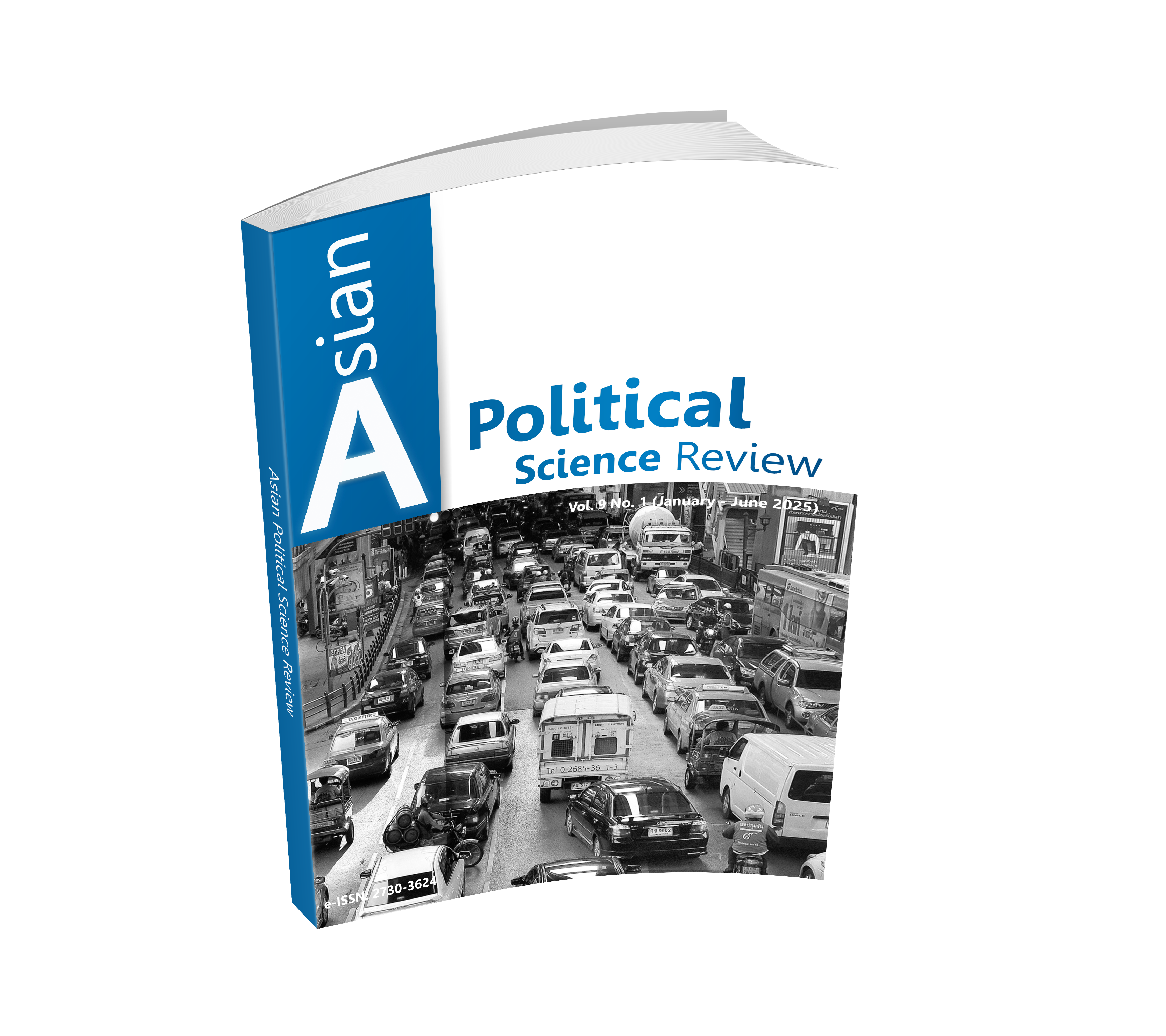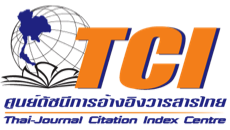RESOLVING CONFLICTS IN THAILAND'S NATIONAL PARKS: LESSONS IN COLLABORATIVE GOVERNANCE FOR ECOTOURISM
DOI:
https://doi.org/10.14456/apsr.2025.3Keywords:
National Park Areas, Collaborative Governance, Community-Based Ecotourism ManagementAbstract
The research aimed to study the lessons learned from operations for resolving conflicts in using national park areas in Thailand with the concept of collaborative governance to promote decentralization in community-based ecotourism management from the case study of Ban Luang, Chom Thong, Chiang Mai. The research findings indicate that the lessons learned from the case study have established collaboration among various stakeholders in the area, including Doi Inthanon National Park, Ban Luang Sub-District Municipality, Royal Agricultural Station Inthanon, Sustainable Development Foundation (Northern Region), Thai Forest Conservation Foundation, and community-based tourism entrepreneurs. This collaboration has continuously addressed conflicts related to managing community land use within the area designated as Doi Inthanon National Park since 2013 under the initiative "Inthanon Family. Then, in part of the analysis of potential conditions leading to the establishment of collaborative governance for promoting decentralization in land management within the conservation areas where community-based ecotourism found four suitable conditions: 1) shaping collaboration among relevant stakeholders; 2) establishing mutual trust-building processes; 3) implementing collaborative decision-making processes; and 4) setting common goals to achieve expected outcomes together, which has led to the creation of suggestions for ways to resolve conflicts in the use of national park areas in Thailand with the concept of collaborative governance to promote decentralization in community-based ecotourism management.
Downloads
References
Ansell, C., & Gash, A. (2008). Collaborative Governance in Theory and Practice. Journal of Public Administration Research and Theory, 18(4), 543-571.
Ban Luang Subdistrict Municipality. (2016). Municipal Ordinance of Banluang Subdistrict Municipality on Participatory Management of Natural Resources and Environment 2015. Chiang Mai: Ban Luang Subdistrict Municipality.
Ban Luang Subdistrict Municipality. (2023). Local Development Plan (2023-2027). Chiang Mai: Ban Luang Subdistrict Municipality.
Ek-Iem, B. (2020). Conflict ManagementinCommunity Tourism Resource Managementof Local Leaders in Chiang Mai. Journal of Agricultural Research and Extension, 37(3), 79-93.
Emphandhu, D., & Klabsuk, R. (2012). Community-Based Tourism Resource Management. Nonthaburi: Sukhothai Thammathirat Open University Press.
Jai-aree, A. (2016). Multi-Party Participatory Process for Sustainable Environmental Management: A Case Study of Ban Pu-Tei Community Forest Management, Kanchanaburi Province. Silpakorn University Journal, 36(1), 111-136.
Perry, J. (2007). Democracy and the New Public Service. The American Review of Public Administration, 37(1), 3-16.
Prime Minister Delivery Unit. (2020). Document for land management under the 20-year utilization project: Mapping boundaries and conditions for habitation or utilization in conservation forest areas according to Section 64 of the National Parks Act 2019 (Copy). Bangkok: Office of the Permanent Secretary.
Rattanajiajaroen, A. (2018). Legal Measures on the Empowerment of Public Participation in National Park Management. Master of Laws Thesis, Thammasat University.
Rhodes, R. (1997). Understanding Governance: Policy Networks, Governance, Reflexivity and Accountability. Buckingham: Open University Press.
Sarobon, S. (2008). Sustainable Tourism Communities: Proposals for Adaptation of Outstanding Tourism Communities in Thailand. Bangkok: Tourism Authority of Thailand.
Suebpradit, B. (2013). Co-management as a space of negotiation for local governance in resource management networks in chiang mai province. Master of Arts Thesis, Chiang Mai University.
Sung-ngoen, S. (2014). Conflict management in conserved areas: a case study of khao laem national park. Master’s Thesis, Thammasat University.
Thanompun, W. (2021). The Legal Measures on Authorization Resided or Eared Their in National Park from Section 64 National Park Act 2019. Master’s Thesis, Thammasat University.

Downloads
Published
How to Cite
Issue
Section
License
Copyright (c) 2025 Authors

This work is licensed under a Creative Commons Attribution-NonCommercial-NoDerivatives 4.0 International License.











.png)


